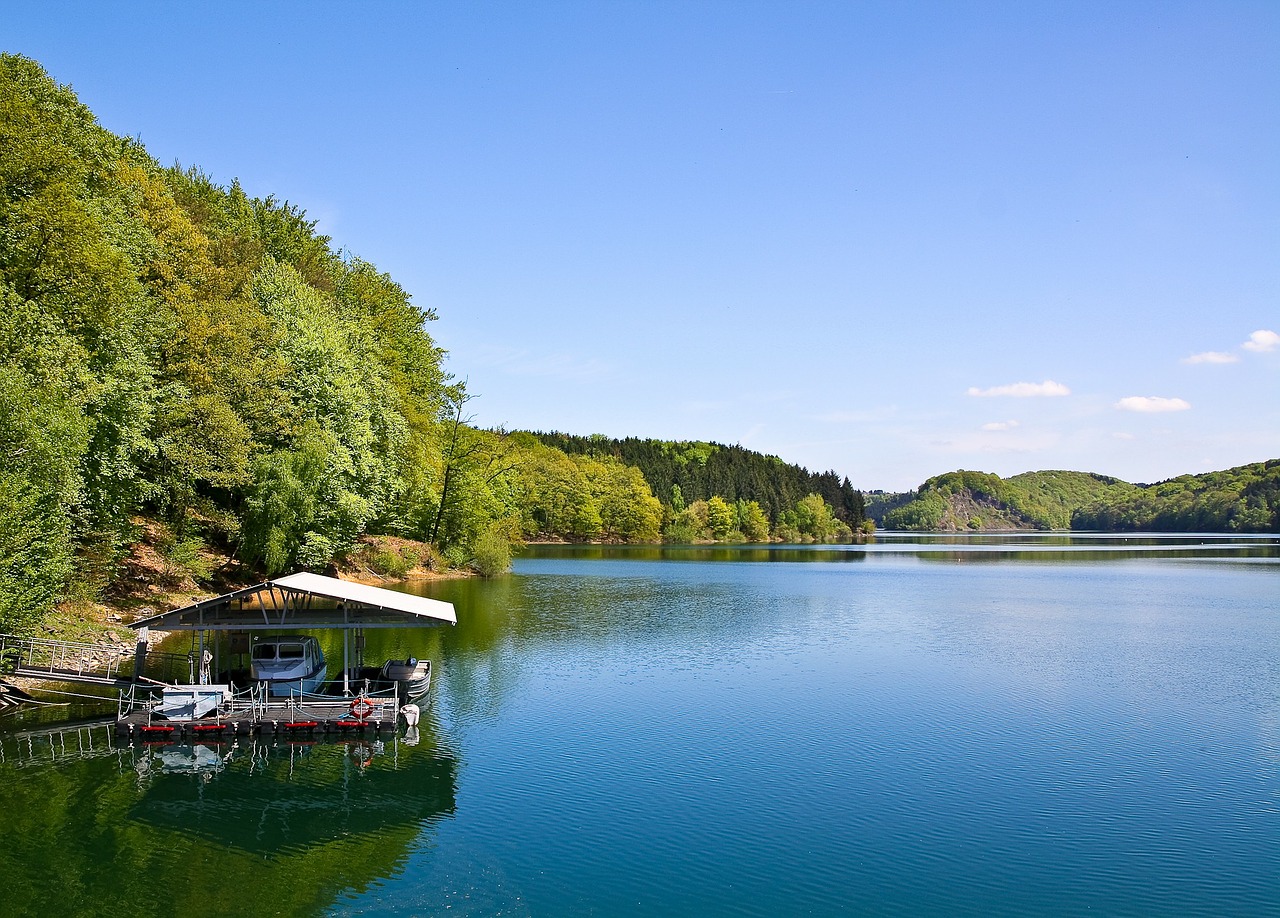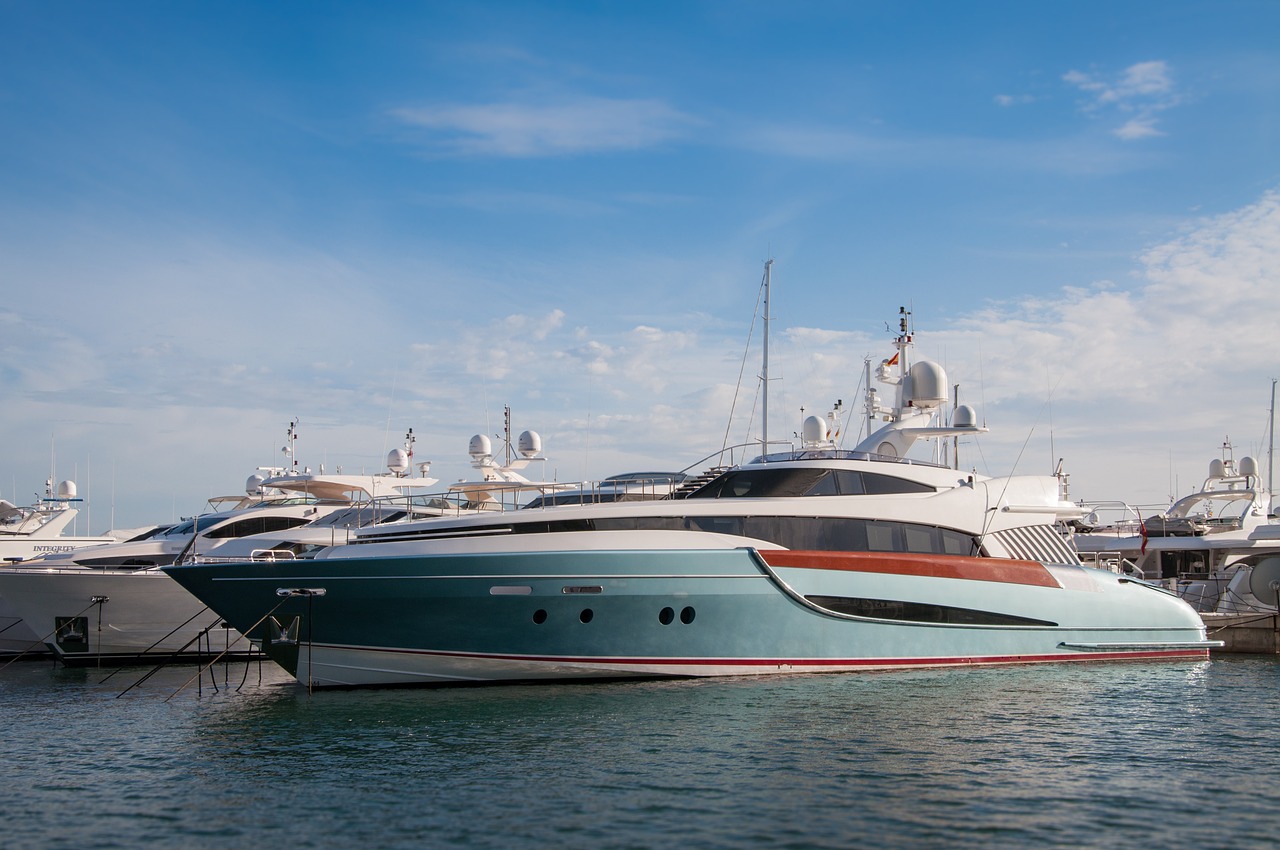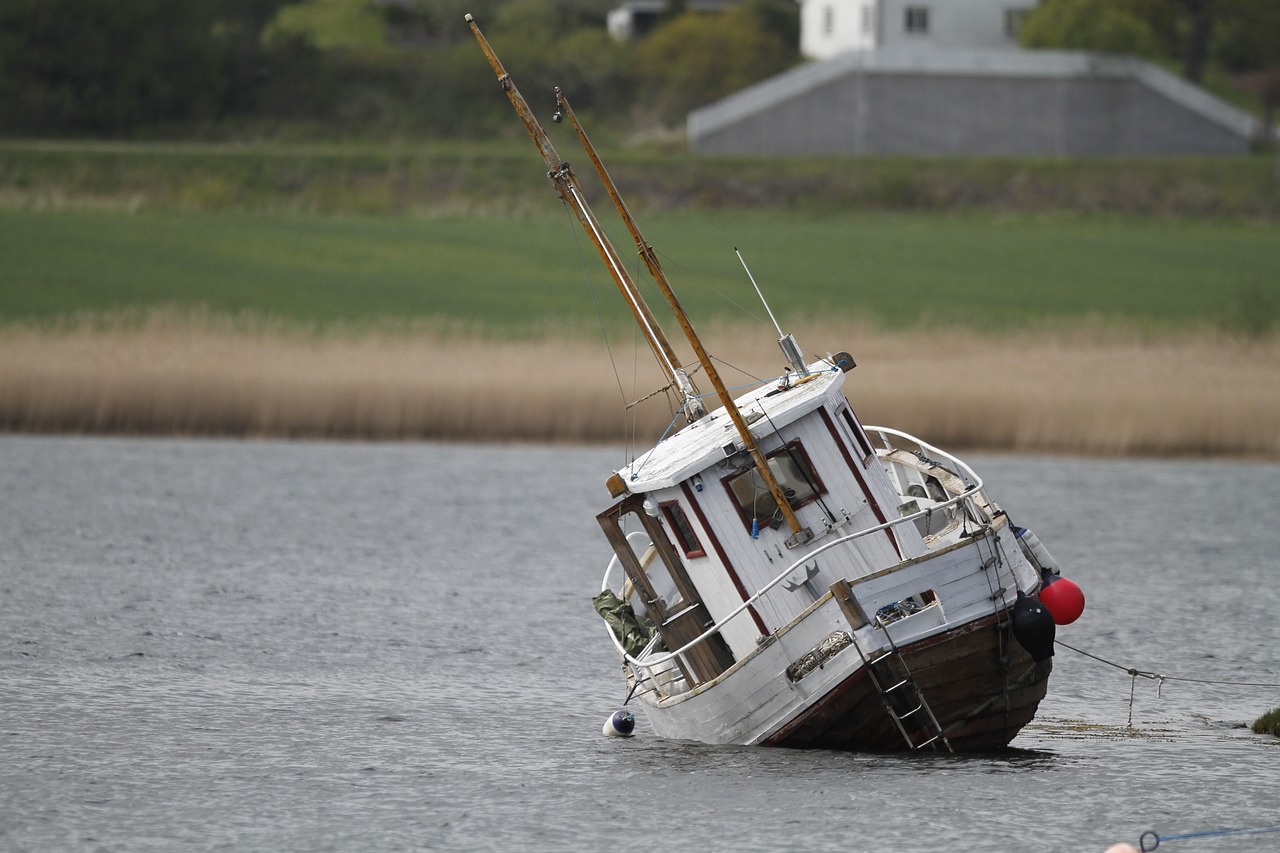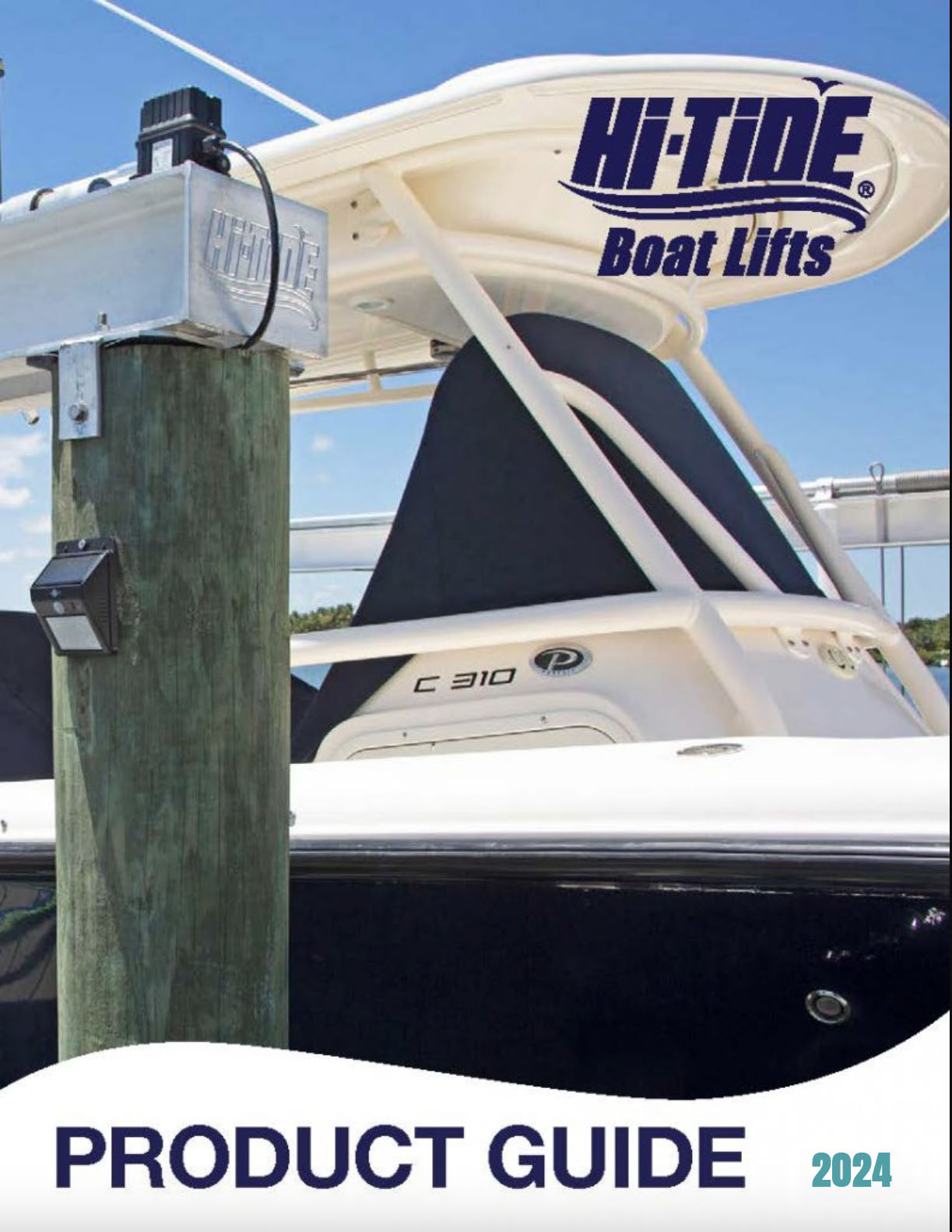
Though you may be more than comfortable visiting your favorite boating spot for years, sometimes Old Jim’s lake can get a bit humdrum (we still love you, Jim). Maybe you dream of hitting the water out West. Perhaps you just want to see the boating diversity within the Sunshine State itself. We’ve all had wandering daydreams of boating spots that are on our “must-see” lists. Why just dream about it when the U.S. is full of diverse waters and some of the best boating in the world?
If you want to get a taste for boating outside of your normal boating bubble, research these five cities for some of the best boating you’ll find this side of the Pacific.
5 of the Best Boating Towns
- Tampa/St. Petersburg, Florida: Featuring Tampa Bay, the largest estuary in Florida, the Tampa/St. Pete area is also rich with rivers and smaller, cruiseable bodies of water. Don’t forget the nearly year-round warm weather that extends boating season far beyond that of our northern friends.
- Ft. Lauderdale/Miami, Florida: OK, we know — you probably think we’re a bit biased, sharing two Florida towns as our picks for best boating, but stick with us. With beautiful, blue waters, fantastic scuba and fishing spots, and a world-renowned boat show, South Florida is simply unmissable on your quest for the best boating in America.
- Austin, Texas: If freshwater boating is more your tempo, look no further than Texas’ inland gem, Austin. This city is home to nearly 5,000 miles of freshwater and nearly 300 lakes. If you’re a fan of Florida’s warm weather, Austin also doesn’t disappoint in this department.
- Minneapolis, Minnesota: Sure, the weather in this chilly, midwest town doesn’t lend itself to good year-round boating, but the “Land of 10,000 Lakes” is a boater’s paradise in warmer months. There are nearly countless options for some top-tier freshwater fishing here.
- Seattle, Washington: A city that’s often dismissed as a rainy, depressing and drab, the boating and outdoor scene is anything but. Featuring a strong boating community and simply gorgeous views, grab a cup of joe and give this city a try.
There’s nothing like having a secret fishing spot or boating route that you share with only blood relatives and best buds; it’s part of boating culture. However, seeing what the rest of this grand country has to offer is something that can make you grow as a boater, and as a person. The above five picks for best boating are far from the only notable cities to add to your must-see list. We’d love to list every worthwhile boating town, but we’d be updating this post well into next week. However, we encourage you all to take the time to explore something new with the ones you love. Who knows? You may just find your new favorite fishing town or boating bastion.

From sweltering heat to monsoon-like downpours, The Sunshine State has weather that’s just a tad on the extreme side. That being said, your boat is bound to take a beating. How can you protect your boat from suffering while out in the elements? From boathouses to waxes, we have a few suggestions to keep your boat shipshape in Florida’s famous sunshine.
How Can I Protect My Boat From the Elements?
- Rinse and Repeat: A vital first step to keeping your boat protected is to clean up your act the right way. Wax and other protectants will not work correctly if you don’t clean your boat thoroughly. Only use boating-specific soaps, however, since some soaps may actually repel the protective waxy coat, you may apply this later.
- Wax On, Wax Off: Though not a necessary step after every boating trip, you should absolutely take the time and energy to wax your boat after washing it. Similar to the benefits of waxing your car, a thoroughly waxed boat will not only have a beautiful sheen but will also be protected from the sun’s ultraviolet rays. Again, ensure that you use a boating-specific wax to ensure that you’re using the right tool for the job.
- Welcome Home: Consider utilizing a boathouse. Boathouses have been used for ages to protect boats from the elements, safely shading them from the sun and rain. With boat lifts made specifically for boathouses, your vessel can be safer than ever.
Though boating is a great way to enjoy some fun in the sun, don’t forget that that very sunshine can cause big issues for your boat’s finish. Prepare by washing your boat regularly, waxing on occasion and keeping your vessel under the cover in a boathouse. Just remember, keeping your boat clean isn’t all about looks; regularly cleaning and waxing is important for both the resale value and long-term care of your vessel.

When you think “yacht,” images of caviar, champagne and flamboyant billionaires may come to mind. However, the definition of what exactly a yacht is varies with almost every person you ask. Is yacht simply a term for a large, luxury ship? What are the defining factors of yachts? Are there any considerations that yacht owners must take that other boaters do not? We explore exactly what a yacht is and why it may not be what you assumed all along.
What is a Yacht?
Well, the definition has changed over time. A yacht, as defined by Merriam-Webster, is basically any recreational watercraft, such as a motorboat used for pleasure cruising or a sailboat used for racing. OK, so not the most specific of definitions, but it’s a good starting place for us. Upon further investigation, it seems that some further refine this definition by adding some simple parameters that separate ships from yachts.
In general terms, yachts tend to be larger than 30 feet and steer towards luxury above all else. It’s important to note that yachts can be considered boats or ships, yet still rightfully retain their claim as yachts. The key differentiator here is the luxury element. Even if a boat isn’t very large, many will still consider it a yacht if it matches a set of luxury standards.
On the high end, megayachts measure in at over 100 feet in length, and superyachts supersede even those, spanning more than 150 feet. Believe it or not, the largest yachts rank in at more than 400 feet.
Consider This
Though you may not have a superyacht, any large vessel requires care when looking for the right lift. Large ships can weigh literal tons and require a special design to hold and evenly distribute such weight. Since boat lifts are our specialty, we can provide the perfect solution to your yacht storage problems.
Hi-Tide provides yacht lifts that:
- Can handle yachts from 40,000 pounds to 90 tons
- Can conform to custom, special sizes and configurations
- Utilize the sealed aluminum Hi-Tide Gear Drive® gear box
- Use 6061-T6 marine-grade aluminum throughout the design
The bottom line: if you’re shopping for a ship and see the buzzword, “yacht,” displayed prominently, make sure you do your research and find out if the seller’s definition meets yours before you’re met with disappointment. Once the yacht of your dreams is yours, you know who to call to give you a lift.

From a big exam to getting through tax season without a migraine, most things in life are made substantially easier with a bit of preparation. Boating is no different, and by following a few tips and preparing for the worst, you can ensure your safety and the safety of your passengers in the catastrophic case of a sinking boat. It may not be fun to think about, but these tips may just save your life if tragedy strikes while you’re out at sea.
Preparation
According to How Stuff Works, the most common reasons why boats sink include:
- Flooded Bilge: As the lowest point of your boat, it’s common for water to collect here. Many boaters opt for a bilge pump that will automatically turn on once the water level in the bilge reaches a certain height.
- Missing Drain Plugs: An incredibly easy oversight to make is to forget to return unplugged drain plugs once your vessel is stationary. Many boaters keep their plugs in an area that’s always in sight, as an easy reminder to put them back.
- Collision: Know your route and take it slow. Make sure to check the weather report before hitting the water, know the depth of waters you’re charting and always stay vigilant while in unfamiliar waters.
- Low Transom: Another preventable sinking risk is a low-sitting transom. Avoid unnecessary risk by avoiding storing heavy items in the stern of your ship. Also, never anchor from the stern side, as this may significantly lower your transom.
- Engine Leaks: Checking your engine for leaks, especially the cooling system, is important to ensure that corrosion or broken tubing isn’t pumping gallons of water into your vessel once you embark.
Action
Actions to take if your sinking boat is beyond salvage:
- Remain Calm: This may seem like an impossible task, but panicking will only lead to chaos on a sinking boat. Study up on your boat safety drills and be ready to give or receive clear orders on what your crew and passengers next actions should be after the ship takes on water.
- Get Safety Equipment: There are some vital items that could be literal lifesavers if you’re forced to abandon ship. Always keep safety items onboard and in appropriate numbers for all passengers and crew, including life vests and emergency locator beacons. A popular option is to have an “abandon ship bag” ready and onboard at all times, while ensuring that all passengers wear personal floatation devices.
- Call for Help: If you have the time, and only if, call mayday on the VHF channel one-six to report your emergency to the Coast Guard. This marine channel is under constant monitoring and may help ensure that you and your loved ones receive the emergency assistance you need. As a backup, always have emergency locator beacons on-hand.
It’s not something any boater wants to think about, but it is also of utmost importance that you know what to do in the case of a sinking boat. Stay informed on time-tested safety measures and always follow the laws and regulations that keep us all safe while on the water.

“Boating is too expensive.” “Boating is too hard.” “I caught an 8-foot marlin off the coast of Panama in the early 1980’s.” Boating culture is full of tall tales. Unfortunately some of these myths enter the echochamber with ill intent, keeping people that would otherwise love their time on the water landlocked in fear and doubt based on exaggerations or lies. Check out our hand-selected list of some big myths that surround boat ownership, as well as an important reminder for those already on the water.
Boat Ownership Myths
- Pay to Play: Is buying a boat the surefire way to end up in debt that many (often non-boaters) claim it to be? We certainly hope not, but let’s break down some facts. Boats do require an investment of time and money, due to upkeep costs, insurance, gas and more. However, if you place the costs of boat ownership in comparison to other leisure activities such as a season of skiing or golfing with your family, the cost is actually smaller than you’d think. With many boat dealers offering helpful financing options, there may be less between you and the boat of your dreams than you’d think.
- Boating for Dummies: Isn’t boating extremely difficult and complicated to do without years of experience? Well, like most skills, it’s often easier the more often you do it. This is where the widely available safety and boating basics courses can make a big difference in your confidence and competence when setting off on your first boat trip.
- DUI Still Applies: Drinking and boating isn’t nearly as dangerous as drinking and driving, right? Wrong. According to Boat U.S. Foundation, nearly half of all boating accidents involve alcohol. As mentioned above, driving a boat is skill-based activity. If your skills are hindered due to inebriation, you cannot captain your boat as safely or efficiently as you could sober. Florida law doesn’t mince words: boating with a blood-alcohol level of .08 or higher is illegal.
The bottom line is, we love boating and would love nothing more than to share that passion with others interested in jumping into this wonderful hobby and lifestyle. Do your research, learn the hard facts and, hopefully, we’ll see you on the water soon!






